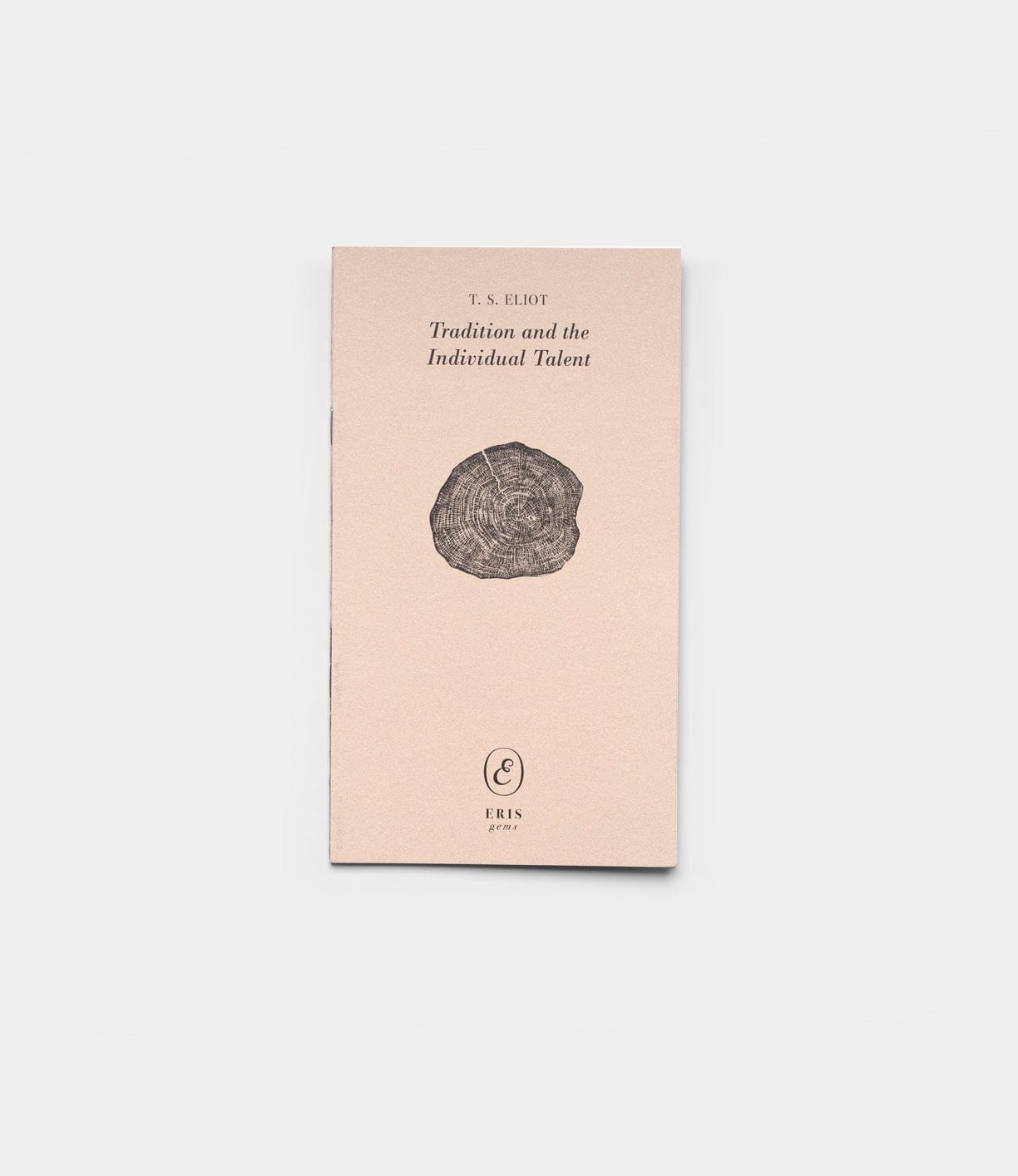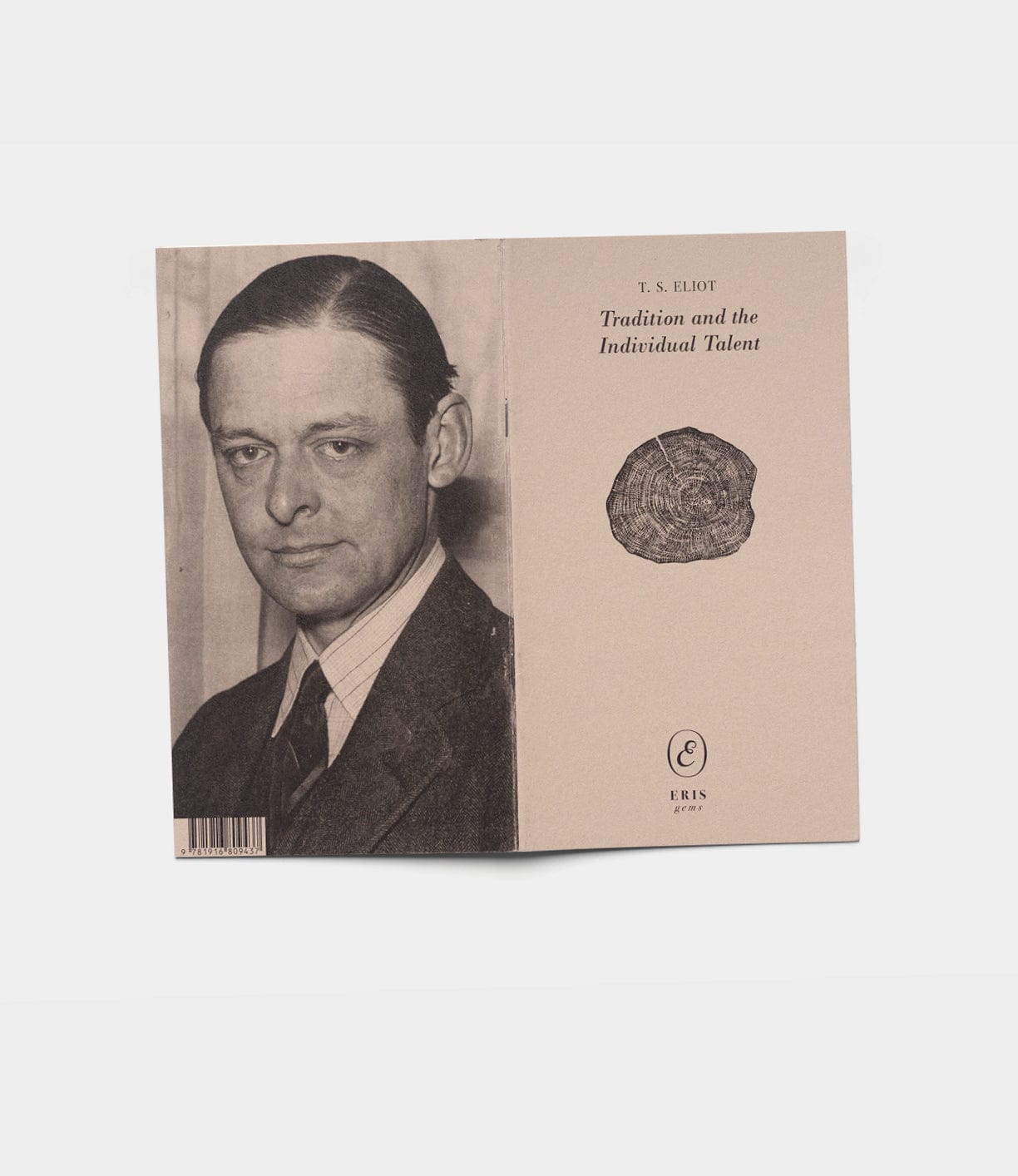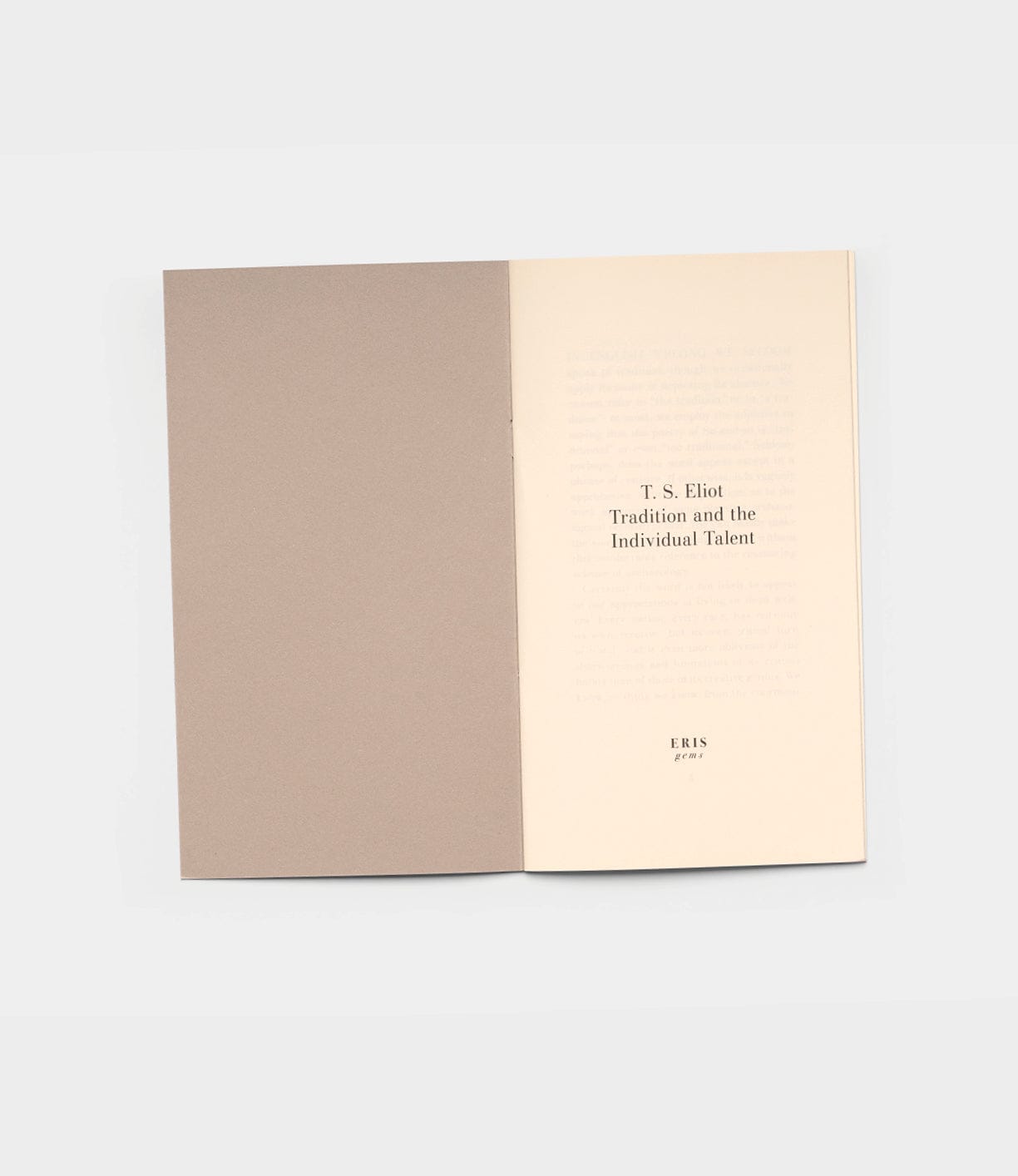Tradition and the Individual Talent
Tradition and the Individual Talent
Tradition and the Individual Talent
Tradition and the Individual Talent
"Poetry is not a turning loose of emotion, but an escape from emotion." T.S. Eliot's declaration upended literary thinking when it appeared in 1919, and his argument for "impersonality" as a creative ideal continues to provoke. This isn't artistic theory for its own sake—it's a fundamental rethinking of how artists relate to their craft and their predecessors.
Eliot argues that great art emerges not from raw self-expression but from a deliberate surrender of personality, from understanding tradition as a living force rather than a dead weight. The essay remains controversial precisely because it cuts against our assumptions about creativity and originality.
Eris Gems are small pamphlets that capture brilliant ideas in their most distilled form—arguments substantial enough to challenge, compact enough to finish in a single sitting. Each pamphlet presents a single thesis from contemporary thinkers. T. S. Eliot (1888–1965) was the single most influential English-language poet of the twentieth century. He was awarded the Nobel Prize for Literature in 1948.
By T.S. Eliot, 32 pages, published by Eris Editions
Couldn't load pickup availability





